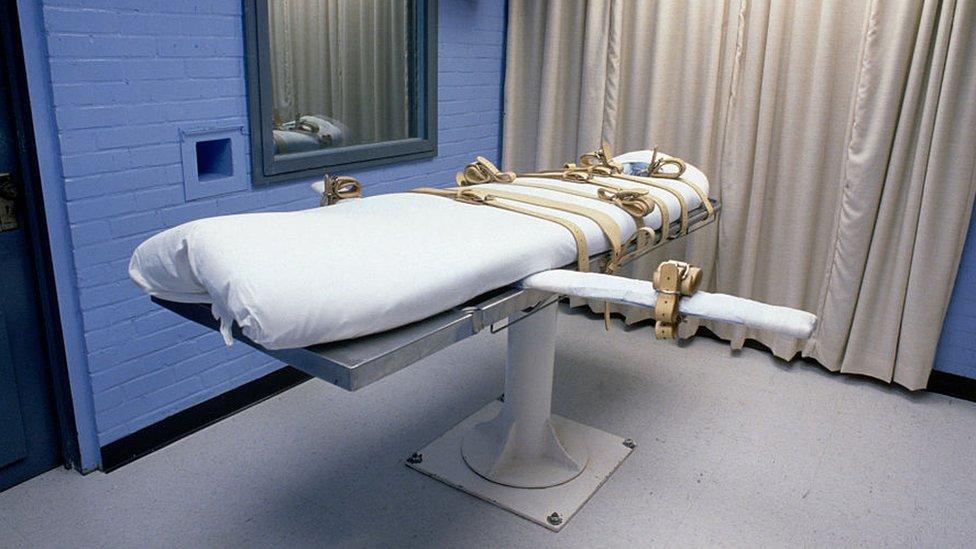Coronavirus: US surpasses three million cases
- Published
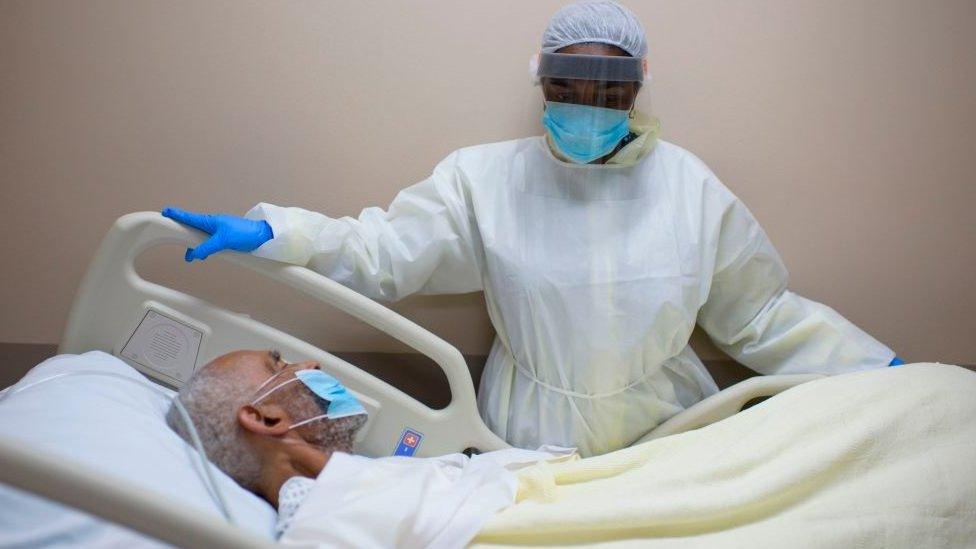
California and Texas each reported more than 10,000 new daily cases on Tuesday
More than three million people in the US have now tested positive for Covid-19, according to Johns Hopkins University.
Over 131,000 deaths have been reported, and on Tuesday the US broke its record for most new cases reported in one day.
Despite the rise, the White House wants to press forward on some reopenings, including for schools.
US Vice-President Mike Pence, who leads the White House Coronavirus Taskforce, argued rules should not be "too tough".
Cases were flattening out, he said, while President Donald Trump said on Tuesday that America was "in a good place" regarding the pandemic.
Over 60,000 new cases were reported Tuesday, shattering the previous highest tally of 55,220 new cases on 2 July.
The latest figures came as the states of California and Texas each reported more than 10,000 new daily cases.
Dr Anthony Fauci, an infectious disease expert and adviser to the White House on the coronavirus, said the country was still "knee-deep" in only its first coronavirus wave.
White House pushes schools to reopen
Speaking to reporters at the US Department of Education on Wednesday, Mr Pence defended the Trump administration's response to the pandemic.
"While we mourn with those who mourn, because of what the American people have done, because of the extraordinary work of our healthcare workers around the country, we are encouraged that the average fatality rate continues to be low and steady," he said after lowering his face mask.
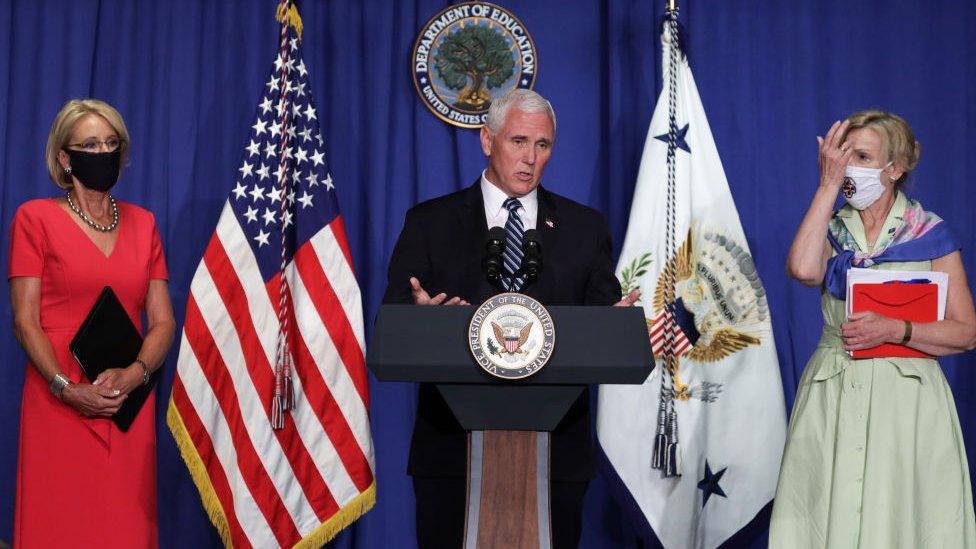
Mr Pence speaks alongside health and education officials
He added that the US Centers for Disease Control and Prevention (CDC) will issue new guidelines on reopening schools after Mr Trump criticised a plan put forward by the expert body as "very tough and expensive" and threatened to cut off funding to schools that don't open in the autumn.
"The president said today we just don't want the guidance to be too tough," Mr Pence said. "That's the reason why, next week, CDC is going to be issuing a new set of tools, five different documents that will be giving even more clarity on the guidance going forward."
Schools in the US normally begin for the year in either August or early September.
The CDC's guidelines suggest pupils and staff all wear face coverings and stay at home if necessary. They also suggest schools should implement staggered timetables and socially distanced seating arrangements, and close communal spaces.
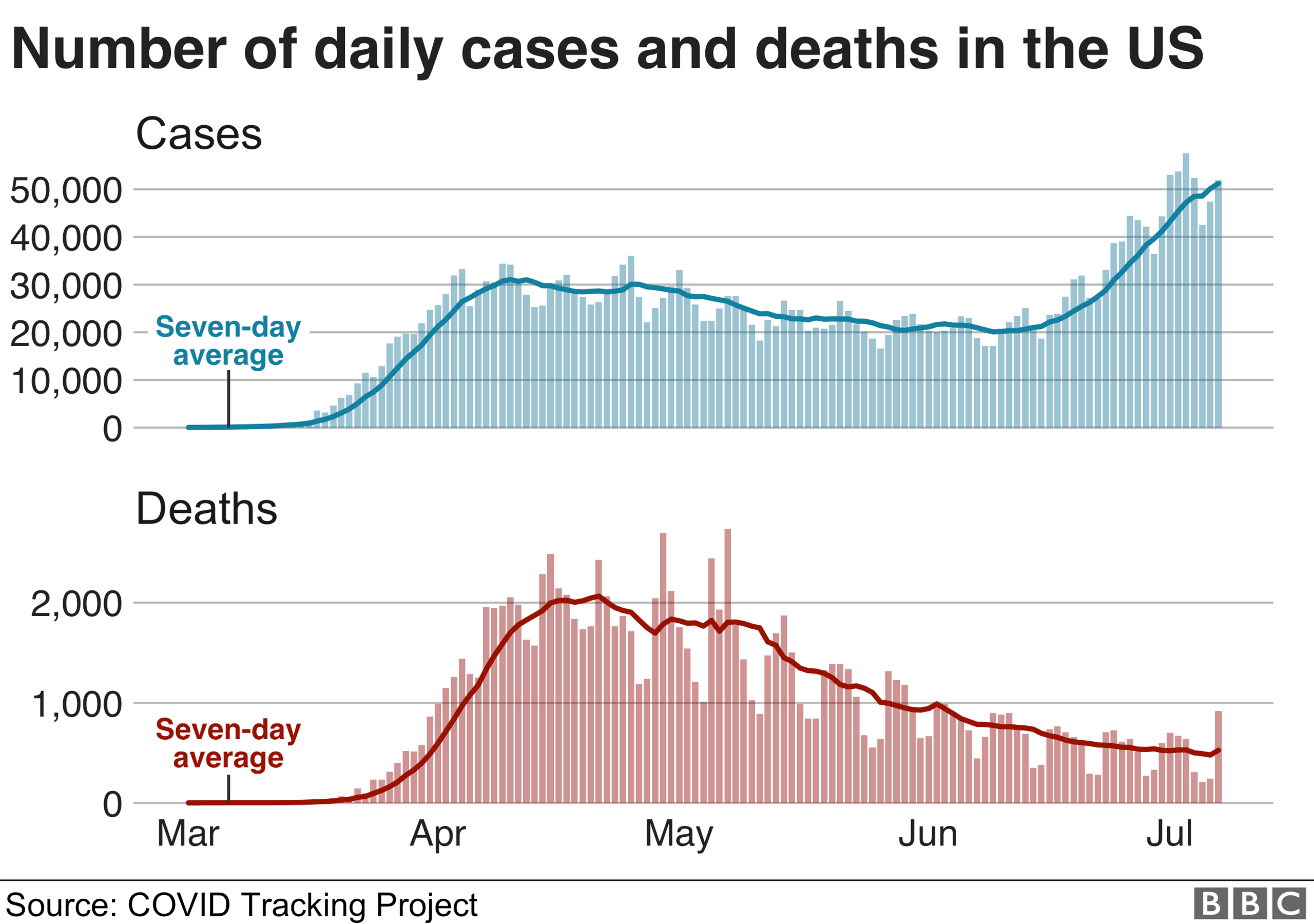

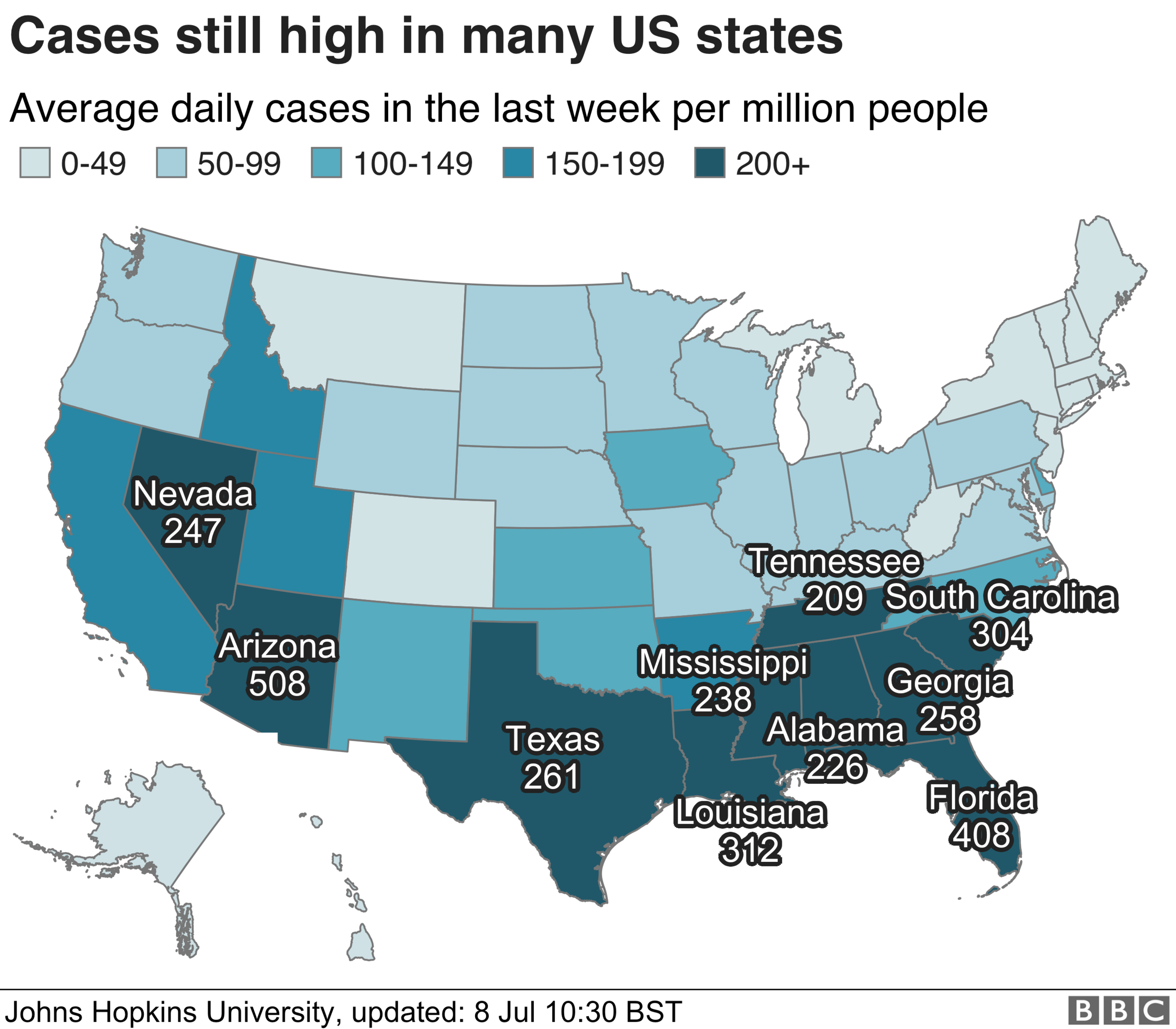

Spike in Tulsa after Trump rally
In Oklahoma, health officials in the city of Tulsa said President Trump's campaign rally there last month and the protests that took place at the same time "likely contributed" to a spike in cases locally, the Associated Press reported.
"In the past few days, we've seen almost 500 new cases, and we had several large events just over two weeks ago, so I guess we just connect the dots," Tulsa City-County Health Department Director Dr Bruce Dart said. The Trump campaign has not yet commented.
Meanwhile, two prestigious universities in the US are taking legal action against the government over an immigration rule they say will force international students to leave the country.
Under the rule, introduced by the Trump administration, foreign students would be barred from staying in the country if their colleges don't hold in-person classes this autumn. Much university teaching is shifting online during the pandemic.
Harvard and Massachusetts Institute of Technology (MIT) - two of the highest-ranking universities in the world - have now asked a federal court to block the rule.
Harvard President Lawrence Bacow said in an email to the Harvard community: "We will pursue this case vigorously so that our international students - and international students at institutions across the country - can continue their studies without the threat of deportation."
In other US virus-related news:
United Airlines warned that unless flights dramatically increase, the company would have to lay off nearly half of its workers - totalling some 36,000 employees
Houston's Democratic mayor blocked the Texas Republican Party from holding its state convention in person, citing public safety concerns due to sharply rising virus cases
Ivy League colleges paused all sports until January, ending hopes that American Football games scheduled for autumn would go ahead

A SIMPLE GUIDE: How do I protect myself?
HOPE AND LOSS: Your coronavirus stories
GLOBAL SPREAD: Tracking the pandemic
EUROPE LOCKDOWN: How is it being lifted?

- Published8 July 2020
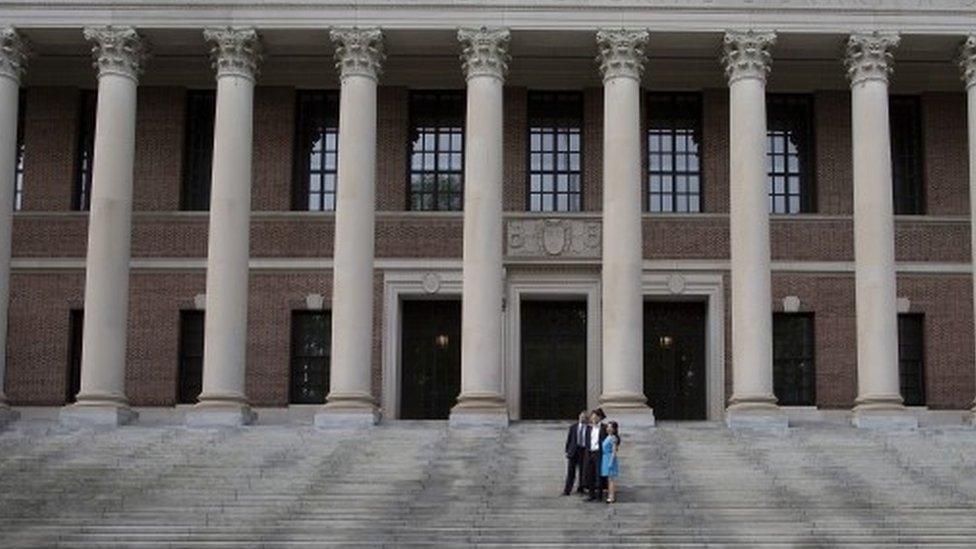
- Published8 July 2020
